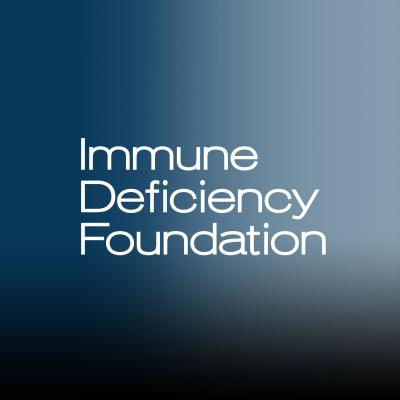
-
Understanding primary immunodeficiency (PI)

Understanding PI
The more you understand about primary immunodeficiency (PI), the better you can live with the disease or support others in your life with PI. Learn more about PI, including the various diagnoses and treatment options.
-
Living with PI
-
Addressing mental health
-
Explaining your diagnosis
- General care
- Get support
- For parents and guardians
-
Managing workplace issues
- Navigating insurance
-
Traveling safely

Living with PI
Living with primary immunodeficiency (PI) can be challenging, but you’re not alone—many people with PI lead full and active lives. With the right support and resources, you can, too.
-
Addressing mental health
-
Get involved

Get involved
Be a hero for those with PI. Change lives by promoting primary immunodeficiency (PI) awareness and taking action in your community through advocacy, donating, volunteering, or fundraising.
-
Advancing research and clinical care
-
Grants
-
IDF surveys
-
Participating in clinical trials
-
Diagnosing PI
-
Consulting immunologist
-
Clinician education

Advancing research and clinical care
Whether you’re a clinician, researcher, or an individual with primary immunodeficiency (PI), IDF has resources to help you advance the field. Get details on surveys, grants, and clinical trials.
-
Grants
As with any medical field, there are a number of terms in the immunodeficiency community that can quickly get confusing for new patients and their caregivers. A few examples: immunocompromised, immunosuppressed, primary immunodeficiency, secondary (or acquired) immunodeficiency, inborn errors of immunity.
What do these terms mean? And how do they relate to each other?
Defining immunocompromised
Someone is immunocompromised if they have a weakened immune system, according to the National Cancer Institute. Although the term “immunocompromised” seems straightforward, when the Centers for Disease Control and Prevention (CDC) used it to describe who should receive a COVID-19 ‘booster’ vaccine, there was considerable confusion among both medical providers and the public (the CDC has since clarified its booster guidance).
Part of the confusion comes from the many different conditions and situations that can cause someone to be immunocompromised. A person who is immunocompromised can also have a wide range of symptoms, from mild to life-threatening. However, the term alone doesn’t specify cause or severity.
To complicate matters, “immunosuppressed” is often used interchangeably with immunocompromised.
In 2013, the CDC estimated that 2.7% of the U.S. population was immunocompromised based on self-reporting through the National Health Interview Survey. Updated to 2022 population estimates, that’s almost 10 million Americans whose immune systems aren’t functioning properly.
Primary versus secondary (or acquired) immunodeficiency
Inherited conditions (those that run in families) that cause a person to be immunocompromised are known as primary immunodeficiencies (PIs). They result from mutations in specific genes passed down from parents to their children. There are more than 550 rare, inherited conditions recognized as primary immunodeficiencies by the International Union of Immunological Societies. This number continues to grow.
Secondary immunodeficiencies are much more common than PI and are acquired rather than inherited. Unlike PI, a secondary immunodeficiency may be temporary. Some causes of secondary immunodeficiency include infectious diseases (HIV/AIDS), medical treatments (corticosteroids, solid organ transplantation), or ‘complex’ diseases (those resulting from a combination of genetics and circumstances like type II diabetes).

Note that ‘primary’ versus ‘secondary’ immunodeficiency only specifies how the condition happens, not the severity of the condition's symptoms. For example, solid organ transplant recipients, who have a secondary immunodeficiency, are considered severely immunocompromised due to the powerful medications they take to keep their immune systems from attacking the transplanted organ. On the other hand, IgA deficiency, a type of primary immunodeficiency, in some cases causes affected individuals to be only mildly immunocompromised.
Inborn error of immunity (IEI) versus primary immunodeficiency (PI)
Our understanding of immune system conditions has grown a lot since the first PI – X-linked agammaglobulinemia – was identified in 1952. To reflect this better understanding, the medical community has adopted the phrase ‘inborn error of immunity’ (IEI) in place of primary immunodeficiency.
‘Inborn error of immunity’ captures some key information that ‘primary immunodeficiency’ does not.
In medical terminology, ‘primary’ refers to the first or most significant symptom, or the body system where a condition originates. The term ‘primary immunodeficiency’ implies that the conditions mainly affect or originate in the immune system. But some mutations are in genes so important (or affect such a large number of genes) that symptoms originate in and span many organ systems. However, all mutations that result in inherited immune system conditions are, by definition, present from birth, or ‘inborn.’
Also, inherited immune system conditions can cause autoimmune symptoms (where the immune system attacks normal organs and tissues) in addition to weak immune response to infection. ‘Errors of immunity’ describes these types of symptoms better than immunodeficiency.
In 2017, the International Union of Immunological Societies (IUIS) committee that classifies inherited immune system conditions renamed itself to reflect the ‘inborn error of immunity’ terminology. IDF will continue to use primary immunodeficiency as the more familiar term but will incorporate inborn error of immunity as a synonym encompassing all of the diagnoses in our vibrant community.
Tired of being sick? It could be your immune system.
Our assessment tool helps identify potential primary immunodeficiency patterns. Take the first step toward answers.
Take our self-assessmentRelated resources

IDF Patient & Family Handbook for Primary Immunodeficiency Diseases, Sixth Edition (Korean)

Bold Conversations: Health insurance

Manual para pacientes y familias sobre inmunodeficiencias primarias, sexta edición
Sign up for updates from IDF
Receive news and helpful resources to your cell phone or inbox. You can change or cancel your subscription at any time.





The Immune Deficiency Foundation improves the diagnosis, treatment, and quality of life for every person affected by primary immunodeficiency.
We foster a community that is connected, engaged, and empowered through advocacy, education, and research.
Combined Charity Campaign | CFC# 66309

